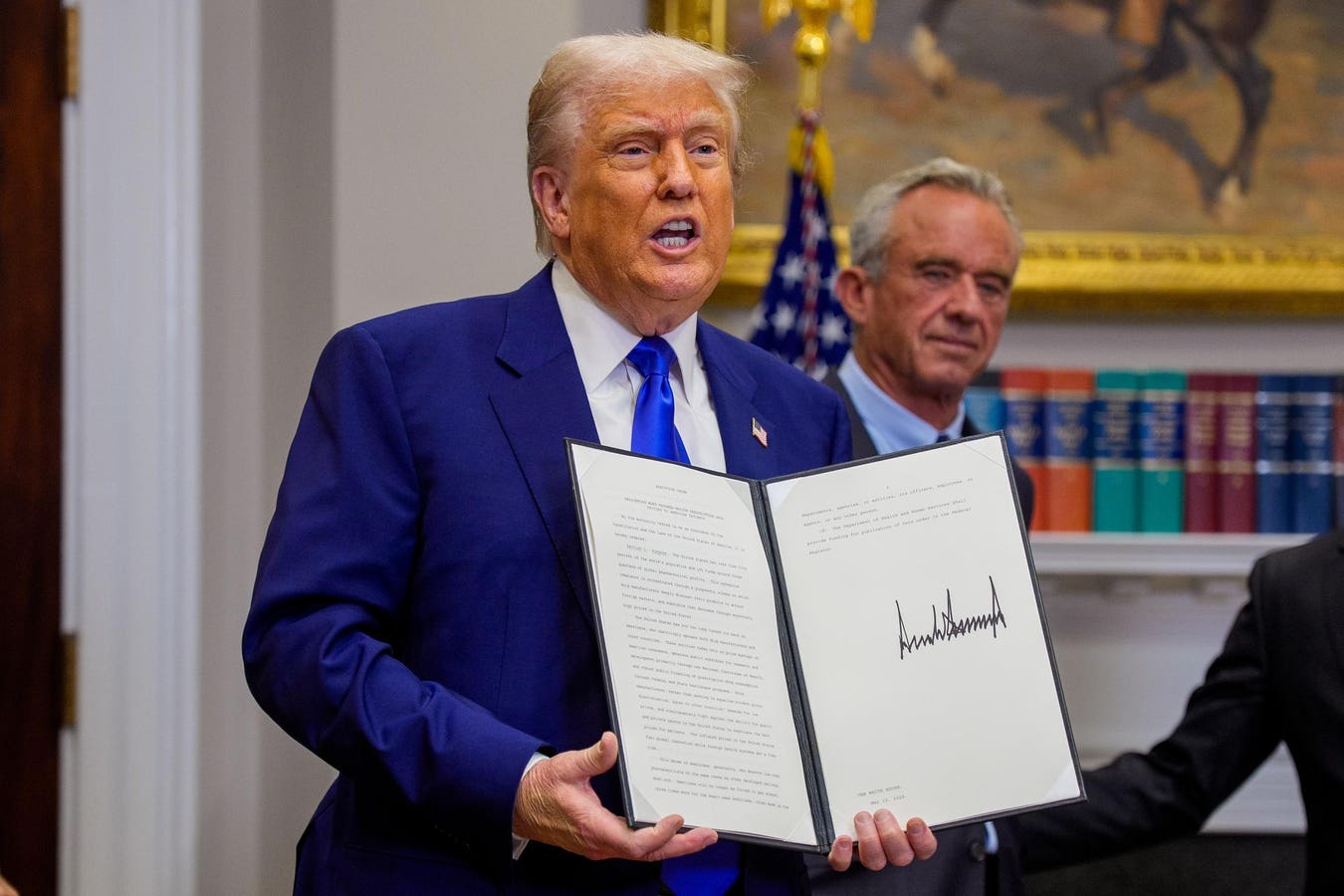In this week’s edition of InnovationRx, we look at the biotech deal frenzy, Recursion’s incoming CEO, the infant formula botulism outbreak, and more. To get it in your inbox, subscribe here.
Merck announced last week that it would acquire biotech Cidara Therapeutics for about $9.2 billion. The primary reason: Cidara’s antiviral drug to prevent flu infections among patients with a high risk of complications, currently in late-stage clinical trials. The deal is Merck’s second multi-billion dollar acquisition following its $10 billion agreement to buy Verona Pharma for its respiratory drugs in July.
The Merck deals are just the latest sign of this year’s biotech deal frenzy. This month alone has seen Pfizer’s $10 billion acquisition of Metsera after a bidding war for its weight-loss drugs with Novo Nordisk and Johnson & Johnson’s $3 billion agreement to buy Halda Therapeutics for its cancer therapies.
The dollar volume of M&A (through October 31) hit $129 billion, 43% more than in all of 2024, according to accounting firm EY. Intriguingly, the industry hit that with just 67 deals–26% fewer deals than in 2024, because the average deal size in 2025, at $1.9 billion, is up 101% over last year. Part of the reason, the accounting firm told Forbes, is that this year’s deals reflect “a pivot to market-ready assets.”
Recursion’s Incoming CEO Needs to Prove that AI Drug Development Can Pay Off
Recursion’s incoming CEO Najat Khan
Recursion
In 2014, Recursion cofounder and CEO Chris Gibson promised to develop 100 drugs in 10 years, thanks to the company’s use of AI in drug discovery.
It’s been rocky. More than a decade on, Recursion still has not brought a single drug to market. Its shares have cratered 86% since its April 2021 IPO, giving it a market cap today of $2.2 billion. Earlier this year, Recursion culled half of its pipeline of drugs and in June it cut its workforce by 20%, the third round of layoffs since August 2024. And its revenue for the latest 12 months (through September 30) shrank by one-third to $44 million from $65 million while its losses ballooned by nearly 90% to a staggering $716 million.
But Najat Khan, who will take over as CEO on January 1 as Gibson steps back, likes doing hard things.
“A lot of people when I went to Recursion said, ‘Changing the rules about how medicine is made is really hard.’ I’m like, ‘All right, challenge accepted,’” Khan told Forbes in her first interview since accepting the top job. “Is it going to work? Is it not? It is so worth a try, and rising up to that challenge, because 20 years into my career, we still have a 90% failure rate.”
Read more here.
Baby Formula Botulism Outbreak
ByHeart was supposed to be the better organic infant formula, going up against the big players in a tightly controlled market. This month, a botulism outbreak tied to the formula struck 23 babies across 13 states leading to multiple hospitalizations, according to an FDA update published Friday. Five lawsuits have been filed by parents whose children were infected with the potentially fatal disease.
ByHeart had shut down its Pennsylvania manufacturing plant earlier this year after federal investigators found safety violations that included mold, a leaking roof and thousands of dead insects in a production area, according to reporting by The New York Times. It announced a nationwide recall of all of its infant formula last week.
The outbreak comes as President Trump’s Make America Health Again movement has promoted organic ingredients, like those in ByHeart’s formula, and HHS Secretary Robert F. Kennedy Jr. has pushed Operation Stork Speed to expand healthy options for infant formula and shore up America’s supply chain for it–despite the fact that DOGE layoffs and a hiring freeze have left nearly 1 in 5 FDA food inspector positions vacant.
Deal of the Week
Ali Madani started thinking about how AI could be programmed for biology in 2020, years before the launch of ChatGPT. The machine learning scientist was working at Salesforce, which that year launched a moonshot project, called ProGen, to design novel proteins with generative AI. In 2022, he teamed up with Alexander Meeske, head of a research lab at the University of Washington, to start Profluent. Now, his Emeryville, California-based startup’s AI models enable scientists to explain the properties they want in a protein in human language (like stability or ease of manufacturing), and then output a DNA recipe to create that protein.
Madani, who has a Ph.D. from the University of California, Berkeley and was the lead author of a Nature Biotechnology paper on ProGen, believes focusing on proteins will unlock groundbreaking new drugs and also lead to breakthroughs in agriculture, where researchers hope to create more resilient and sustainable crops. “The proposition of making biology programmable is going to enable blockbuster drugs, and solutions across therapeutics, diagnostics and agriculture—and it’s going to require a lot of capital,” he said.
To that end, Profluent raised $106 million in new venture funding led by Jeff Bezos’s Bezos Expeditions and Altimeter Capital, bringing total investment to $150 million. With the new financing, Profluent’s valuation is approaching $1 billion.
Read more here.
WHAT WE’RE READING
A $2.6 billion deal with Eli Lilly boosted shares of South Korean biotech company ABL Bio by about 80% over the past week, making company founder and CEO Lee Sang-hoon a billionaire.
Novartis’s malaria drug–the first new treatment in 25 years–cured more than 99% of patients in late-stage clinical testing.
Cheaper rivals are coming for Botox, threatening Abbvie’s $2.7 billion treatment.
A survey finds that one in six Americans are regularly turning to AI chatbots for medical advice.
A U.S. jury awarded Masimo $634 million in damages from Apple, finding that the tech giant infringed on Masimo’s pulse oximetry patent.
Cheap health insurance plans touted by Trump lack comprehensive coverage, catching buyers unaware–and stuck with big bills–when they need surgery.
RFK Jr. confidante Calley Means will rejoin the Trump Administration where he is expected to serve as a bridge between the MAHA movement and Trump’s MAGA coalition.








